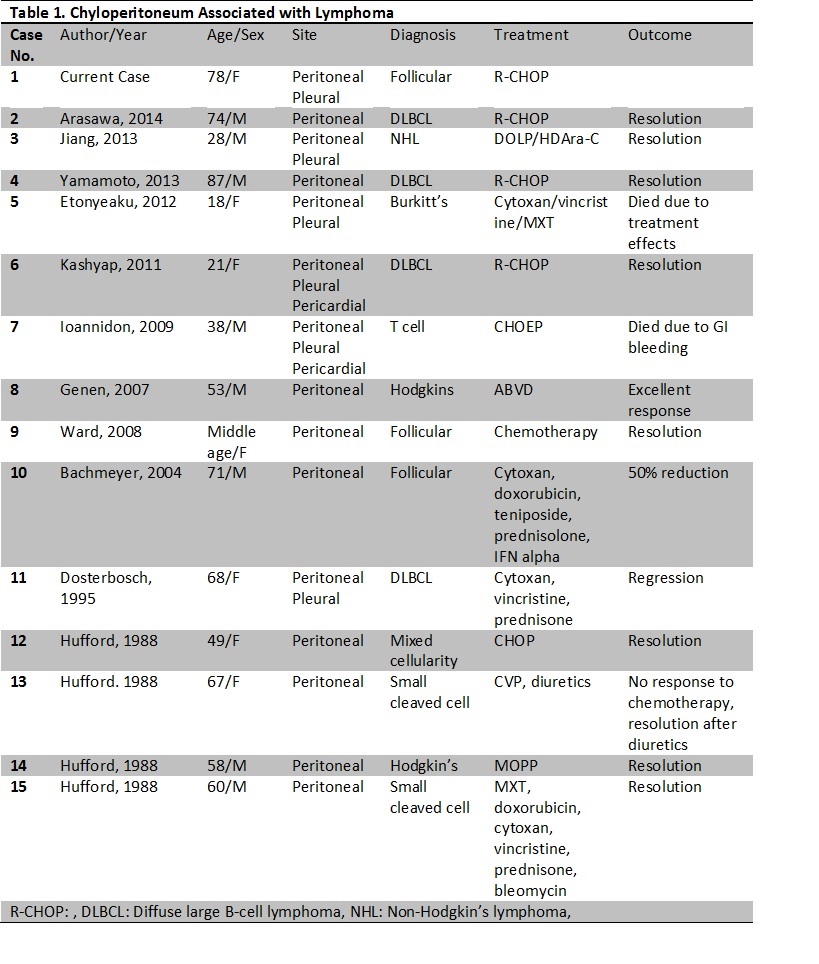Case Presentation:
A 78-year-old woman presented to an outside facility with dyspnea and abdominal distension. Abdominal examination revealed distension and a fluid wave. Pulmonary examination revealed decreased breath sounds and dullness to percussion in the left hemithorax. Paracentesis and thoracentesis were both performed, revealing creamy, colored fluid with elevated triglyceride content. Cytological examination of the peritoneal fluid showed chylomicrons. Prior to presentation to our institution, she underwent thoracentesis four times and paracentesis five times with rapid recurrence of symptoms.
On presentation to our institution, a CT of the abdomen and pelvis revealed para-aortic lymphadenopathy. A CT-guided lymph node biopsy revealed small lymphoid cell proliferation. Flow cytometric analysis showed a monoclonal B-cell population positive for CD19, CD20, and CD10, consistent with a diagnosis of follicular lymphoma. The patient subsequently received R-CHOP chemotherapy regimen.
Discussion:
Chylous ascites is a rare condition, characterized by milky-appearing fluid with elevated triglyceride content and the presence of chylomicrons. In 1982, Press et al reviewed the largest series of patients with chylous ascites due to lymphoma and found prognosis to be poor—only 2 of 13 patients experienced long-term survival. However, one would predict that survival has improved with the emergence of aggressive chemotherapy regimens for lymphoma.
We performed a search of the MED-LINE database for cases of chylous ascites associated with lymphoma using the search terms “chylous ascites”or “chyloperitoneum” and “lymphoma”. 14 cases from 10 unique publications were found. In addition to our patient, six cases had both chylous ascites and chylous pleural effusion, and two of those cases had chylopericardium as well. Like our patient, most cases were associated with low-grade lymphomas and had excellent response to chemotherapy. Two patients with aggressive malignancies (T-cell and Burkitt’s lymphoma) died from their disease.
Conclusions:
Chyloperitoneum is an extremely rare complication of lymphoma, and previously reported to portend a poor prognosis. Our review of the contemporary literature suggests that the advent of aggressive chemotherapy regimens has led to marked improvement in survival and resolution of symptoms in most patients.
